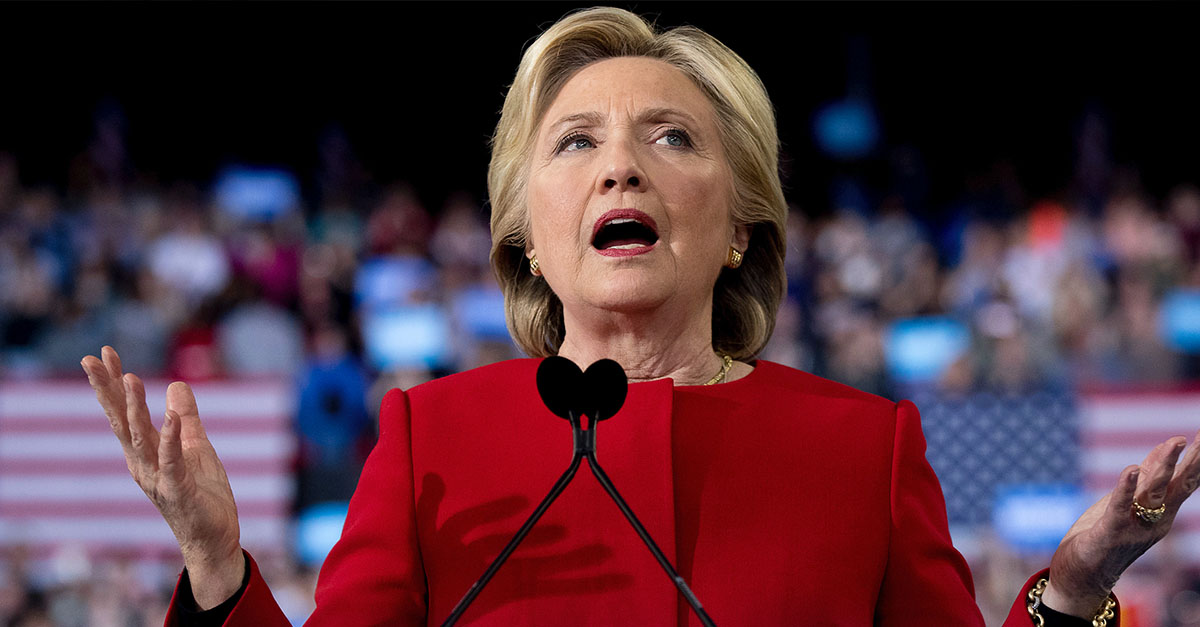Hillary Clinton won around 174,000 more votes than Donald Trump, but she is not president-elect. Trump is going to be our next president because he won the Electoral College.
Videos by Rare
When all the results are certified, Trump will likely have 307 electoral votes to Hillary Clinton’s 231. Under the U.S. Constitution, the Electoral College is what elects the next president. When you vote, you’re actually selecting electors who will decide the president. That makes the national popular vote effectively irrelevant.
Many progressives would like to change that. The New Republic today calls the Electoral College “terrible, skewed, and anachronistic” in a headline. At ABC News, Dan Abrams writes:
They, we, should all be outraged not because Trump won but because the majority of voters lost. After covering the 2000 election I said the same thing (interestingly, as did Clinton) to mostly deaf ears and was going to echo it here if this scenario played out on either side (insert disbelief in comment section from those who refuse to believe anyone could have a principled, rather than partisan view of this issue).
Our electoral college was implemented, in part, based on many founding fathers distrust of uneducated “common people” voting for the President directly. That fear of direct democracy and what became dubbed the “tyranny of the majority” drove them to devise a system to allow for individual input but where ultimately state electors or more accurately “elites” had the final say in who took over the most important position in the land. One of many compromises between federalists and anti-federalists enacted to ensure a unified republic often at odds over how best to move forward as a nation (not to mention the fact that they needed to get the proposed Constitution ratified by the delegates and the states themselves).
Regardless of the framers’ noble intentions, these days empowering state officials and party bosses while literally disenfranchising individual voters, should be a historical footnote. In addition to smaller states having disproportionate representation, voters in what have become known as “swing states” end up with inequitable power and influence. In a nation that prides itself on its democratic principles, how do we justify a single vote from Pennsylvania becoming so much more valuable and important than one from neighboring New York or West Virginia?
First of all, no one is “disenfranchised” under the Electoral College. Every eligible voter can cast a vote for their state’s presidential electors.
RELATED: Here’s why Hillary Clinton woefully underperformed last night
The Founders were right to put the Electoral College in the Constitution back when it was written in 1787. They were afraid larger states would simply overwhelm the voices of smaller states in a national popular vote. The Electoral College tries to create a balance between the states by giving smaller ones more power per vote than larger ones. It is skewed by design and it is designed like that for a reason. That reason is still valid today.
If we got rid of the Electoral College, all elections would largely be decided by the Acela Corridor and the I-5 corridor on the West Coast. That would suit most progressives perfectly because they don’t even need to pretend to cater to the “hicks and racists” in “flyover country.”
Now, there are two problems under the Electoral College that do need to be addressed and they’re intertwined. It is no secret that American election turnout is lower than in most other First World democracies. There is also the legitimate argument that some voters are not adequately represented under the current system.
RELATED: I was wrong about the election; so were most people
For example, if you’re a conservative in California or a progressive in Louisiana, what incentive do you have to vote? Your views are already inadequately represented at the state and local levels because those states’ “top two” and “jungle primary” election systems respectively incentivize candidates to move to the center. Why would you vote for president knowing that your state is going to give all its electoral votes to your opponent?
The solution to that problem is to allocate electoral votes proportionally instead of winner-take-all. You can do that by allocating the result by congressional district, as in Maine or Nebraska, or based on the overall statewide results. For example, if a candidate wins 45 percent of the vote, they get 45 percent of the electoral votes. Those who want to reform the election system should spend their time and energy on that instead of a quixotic quest to try and amend the U.S. Constitution that will surely fail.



